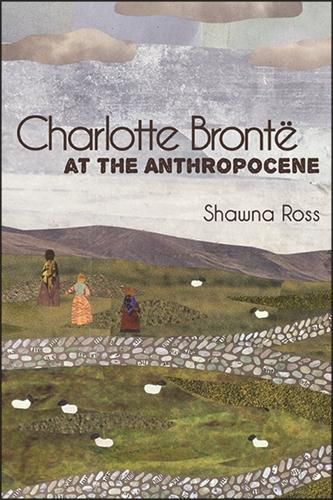Readings Newsletter
Become a Readings Member to make your shopping experience even easier.
Sign in or sign up for free!
You’re not far away from qualifying for FREE standard shipping within Australia
You’ve qualified for FREE standard shipping within Australia
The cart is loading…






Honorable Mention, 2020 Sonya Rudikoff Award presented by the Northeast Victorian Studies Association
In this book, Shawna Ross argues that Charlotte Bronte was an attentive witness of the Anthropocene and created one of the first literary ecosystems animated by human-caused environmental change. Bronte combined her personal experiences, scientific knowledge, and narrative skills to document environmental change in her representations of moorlands, valleys, villages, and towns, and the processes that disrupted them, including extinction, deforestation, industrialization, and urbanization. Juxtaposing close readings of Bronte’s fiction with Victorian and contemporary science writing, as well as with the writings of Bronte’s family members, Ross reveals the importance of storytelling for understanding how human behaviors contribute to environmental instability and why we resist changing our destructive habits. Ultimately, Bronte’s lifelong engagement with the nonhuman world offers five powerful strategies for coping with ecological crises: to witness destruction carefully, to write about it unflinchingly, to apply those experiences by questioning and redefining toxic definitions of the human, and to mourn the dead, all without forgetting to tend the living.
$9.00 standard shipping within Australia
FREE standard shipping within Australia for orders over $100.00
Express & International shipping calculated at checkout
Honorable Mention, 2020 Sonya Rudikoff Award presented by the Northeast Victorian Studies Association
In this book, Shawna Ross argues that Charlotte Bronte was an attentive witness of the Anthropocene and created one of the first literary ecosystems animated by human-caused environmental change. Bronte combined her personal experiences, scientific knowledge, and narrative skills to document environmental change in her representations of moorlands, valleys, villages, and towns, and the processes that disrupted them, including extinction, deforestation, industrialization, and urbanization. Juxtaposing close readings of Bronte’s fiction with Victorian and contemporary science writing, as well as with the writings of Bronte’s family members, Ross reveals the importance of storytelling for understanding how human behaviors contribute to environmental instability and why we resist changing our destructive habits. Ultimately, Bronte’s lifelong engagement with the nonhuman world offers five powerful strategies for coping with ecological crises: to witness destruction carefully, to write about it unflinchingly, to apply those experiences by questioning and redefining toxic definitions of the human, and to mourn the dead, all without forgetting to tend the living.